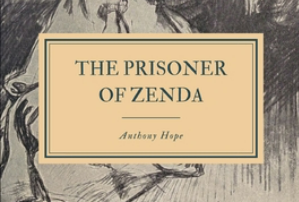Chapter 18 — The Forcing of the Trap
byChapter 18 – The Forcing of the Trap begins with the protagonist deep within the castle, mentally calculating his odds in the deadly game that surrounds him. Though he finds some relief in knowing that Rupert Hentzau is momentarily separated from the King by a moat, the danger remains immediate and suffocating. With only two guards and De Gautet standing in his path, his situation appears grim, especially without the keys to navigate the stronghold. Every footstep echoes with risk, and each moment could unravel the elaborate ruse he has upheld to protect the King. Amid this uncertainty, the castle’s eerie silence is abruptly broken by the clatter of keys and the jarring sound of a struggle. From Madame de Mauban’s room, cries for help pierce the air, adding urgency and unpredictability to an already perilous situation.
With his sword ready, the protagonist positions himself at the critical junction—where any attempt to reach the King must pass. His plan rests on instinct and timing, knowing full well that hesitation could mean failure. Soon, the Duke—Black Michael himself—attempts to force his way into the room where the screams originate. Tension spikes as Rupert Hentzau’s voice enters the fray, his presence confirming the chaos is spiraling beyond even their original scheme. These converging crises signal that the carefully laid plans are fracturing. Yet within that fracture lies the opportunity the protagonist has waited for. When De Gautet finally emerges, the protagonist springs into action, dispatching him swiftly and securing the precious keys.
The turning point has arrived. With access to the staircase that leads to the King’s cell, the protagonist moves with quiet determination, even as blood and betrayal stain every step. He hears voices just beyond the door, and the words exchanged reveal the chilling intent of murder. No longer is this a matter of disguise or deception—this is survival. The moment calls for action, not thought. Sword in hand, he charges into the room and meets Bersonin and Detchard, the Duke’s most loyal men. A fierce battle unfolds. Though he faces two skilled fighters, his speed and precision give him a fighting chance. Bersonin falls after a brutal exchange, but Detchard refuses to yield, matching him stroke for stroke in a display of deadly skill.
Their duel reaches a fever pitch when the imprisoned King, dazed and weakened, stirs from the floor and attempts to assist. His sudden lunge distracts Detchard just long enough to shift the balance. The antagonist slips—ironically, on the very blood spilled by his own comrades—and that misstep becomes fatal. The protagonist strikes, ending the deadly game in a final thrust. The cell, once a chamber of despair, now holds only the wounded King, the dead, and a man who risked his life for honor rather than glory. In the moments that follow, the protagonist turns not to celebration, but to checking the King’s injuries. His concern is genuine, born from duty rather than the pursuit of recognition.
With the immediate threat neutralized, the protagonist knows the danger is far from over. The drawbridge is being lowered—more enemies could soon flood the halls. Worse still, Rupert Hentzau has vanished once again, his shadow lingering as a reminder that some threats are not so easily extinguished. The hero remains alert, prepared to defend what he has won at great cost. The chapter does not end with resolution, but with the tightening of tension and the promise of continued peril. Every heartbeat echoes the risk still ahead. The rescue may be complete, but the escape is yet to be secured.
This chapter thrives on urgency and courage, where each movement carries life-and-death consequences. It captures not only the violence of combat but the moral clarity of the man who stands at its center. Through instinct, valor, and quick decisions, the protagonist becomes more than an imposter—he emerges as a symbol of loyalty and leadership. The trap that once threatened to ensnare him has now been turned against its creators, but the cost is not without weight. It is a chapter of triumph and tension, where every sword stroke carries the weight of a kingdom’s future.


